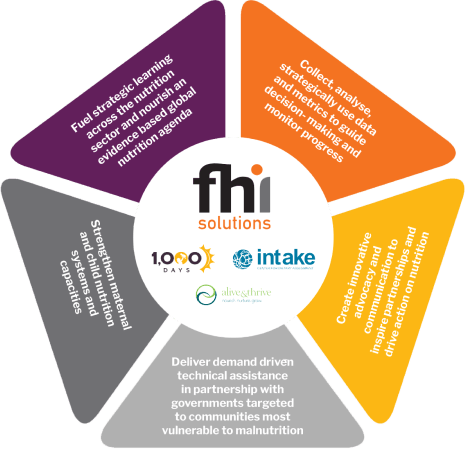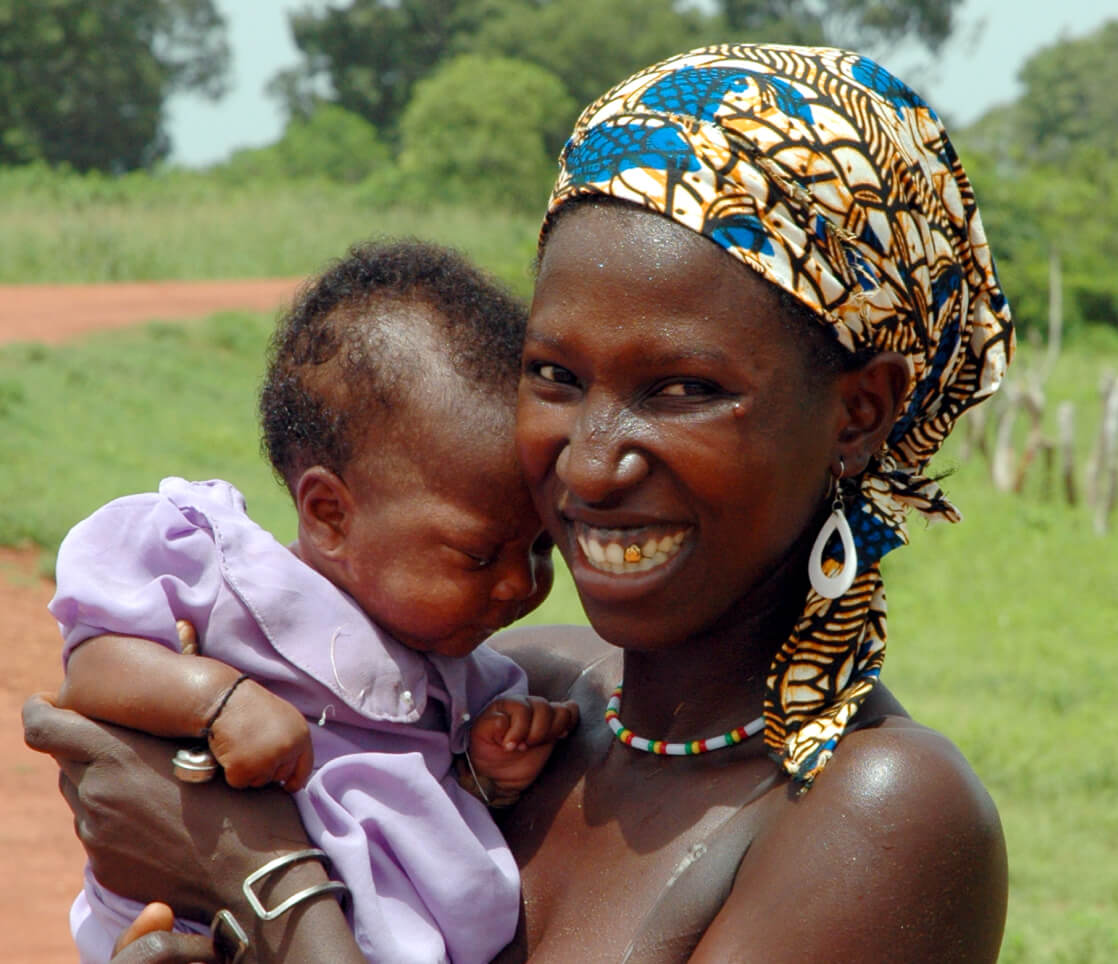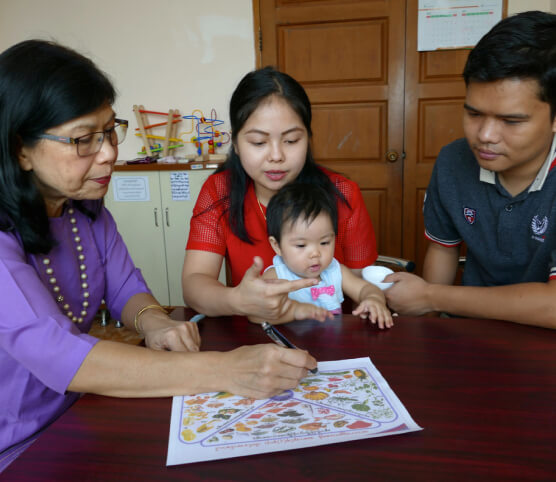Our expertise spans the entire impact spectrum—from project ideation to social behavior and norm change, innovation management, to influencing policy and legislation, and building data and national systems capacity.
We don’t follow a traditional model for hiring. We recruit people based on who they are, and we build teams from there.

Innovation management, implementation learning, and systems strengthening
Alive & Thrive offers evidence-based technical assistance to governments and their partners to develop, deliver, and sustain quality maternal, adolescent, infant, and young child nutrition services at scale.
We partner with governments to strengthen service delivery at the facility, community, and household levels. For example, we work with medical colleges to integrate nutrition into the curriculum; developing e-learning tools and digital applications for health workers to guide counselling and data collection; using implementation research results to guide school-based delivery of adolescent nutrition interventions; and supporting all levels of governments to advocate for nutrition funding.
At Intake, we develop technology tools and provide technical support for the collection, analysis, and use of actionable data on diets, which in turn, can provide value feedback and metrics for nutrition behavior and norm change.
Protecting and learning from indigenous knowledge
Indigenous knowledge has the potential to be a guiding force in our global response to the climate crisis. We honour and protect this knowledge by seeking to develop tools and technologies to better understand what local foods communities are eating day to day. Across all our initiatives at FHI Solutions, we strive to ensure that indigenous knowledge is respected as an integral part of sustainable innovation.


Social norm and behaviour change
Alive & Thrive works in 19 countries on social behavior change programs. Our expertise spans interpersonal communication, community mobilization, and mass media. We have executed numerous behavior-change campaigns – from Nigeria to Nebraska – on a wide range of nutrition issues.
Within health facilities, our counseling has recently focused on improving practices around iron folate acid uptake, weight gain during pregnancy, diet quality and breastfeeding. Activities involve improving the performance of frontline workers taking account of workload expectations, skills needed to counsel, ways to ensure frequent direct contacts, and mechanisms to motivate and recognize good performance.
Advocacy and policy change
Strategic advocacy raises the priority of nutrition among decision makers. Across our network, we translate complex technical findings into compelling, evidence-based program guidance, developing advocacy products and working with partners on compelling narratives to equip influential individuals to champion nutrition.
In the US, 1,000 Days engages stakeholders within the nutrition sector and beyond to build consensus around goals and strategies, creating evidence-based narratives and arguments for policy change.
Our A&T model achieves policy change through media engagement, a broadened partner base, and strengthening the capacity of influential individuals and journalists.
Intake – Center for Dietary Assessment, we work with governments to collect, analyze, interpret, and use the data for evidence-based policy and program design. Technical assistance for strengthening the data value chain has the potential to spark lasting policy change.
Across our impact network, we are working with partners in nutrition, climate, and gender equity communities to build a global Action Agenda to increase and prioritize investment to guarantee strong nutrition outcomes for women and girls.
The world’s first diet quality App
At Intake, we are committed to measuring and understanding people’s diets to protect biodiversity and ensure greater sustainability in food supply chains. As such, we are developing a Climate Sensitive Diet App to report on the environmental impact of diets by tracking four indicators of planetary health: greenhouse gas emissions, land use, eutrophication potential, and water use, based on Life Cycle Assessment data.
The App is designed for use in a population-based survey to facilitate a simple 24-hour dietary recall, linked to environmental impact data to allow for automatic reporting of environmental metrics related to the planetary boundaries. The design of the App will allow users to easily assess and track the link between population-level dietary patterns, diet quality, and planetary health. The beta version of the App will be completed at the end of 2022 and will have high interoperability, meaning that it can be easily scaled and adapted.

Data for decision making
As we approach the deadline for the Sustainable Development Goals in 2030, our aim is to enable governments and other stakeholders to design, implement and track policies and programmes that supports a global vision for healthy, environmentally sustainable diets. National dietary data is central for informing positive food systems actions oriented toward better nutrition, health, agriculture, and climate outcomes.
Across FHI Solutions, our technology and tools are designed to aid and inform policy makers across sectors, including health, nutrition, agriculture, economic, social and trade policies. We also support partners with opinion leader research for policy advocacy; qualitative and quantitative formative research to guides SBCC; situational analyses on health service provision; incorporating real-time monitoring into systems; and creating rigorous process and impact evaluations to guide implementation and measure impact.